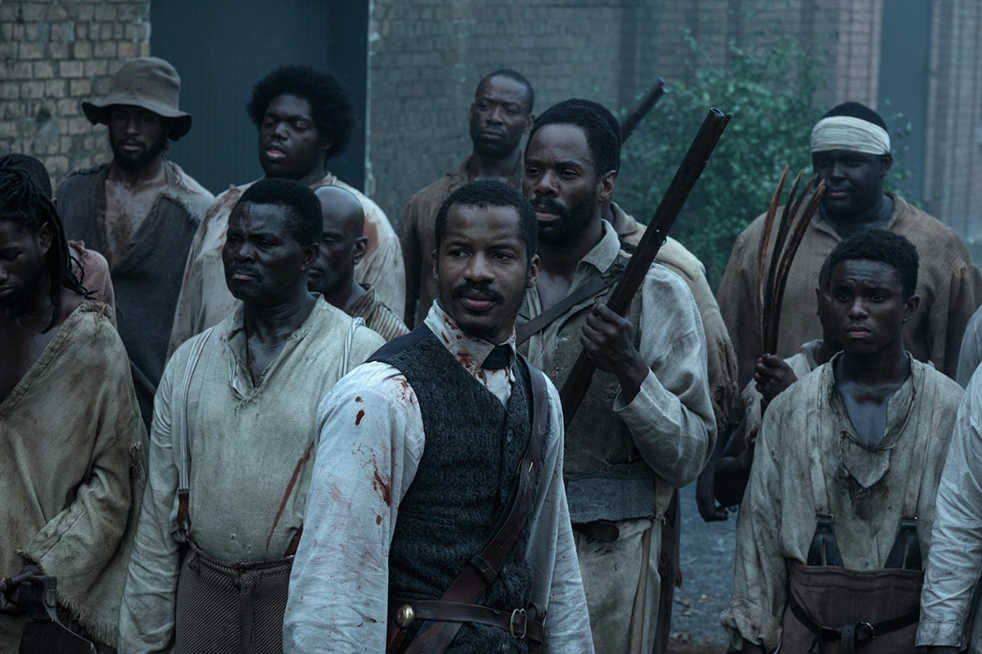In the 21st century, most Americans do not really think about having to earn their freedom; they feel entitled to it because they live in the United States.
Nate Parker’s “The Birth of a Nation” reminds audiences how far the nation has come. It portrays the true horrors of the economic system of slavery that was the way of life 200 years ago, when the film is set.
Despite its familiar storyline towards the beginning, the film manages to distinguish itself from blockbusters such as Steve McQueen’s “12 Years A Slave” and Lee Daniel’s “The Butler.” With its myriad of unrelenting moments and emotionally riveting performances, the film has the potential to become one of Hollywood’s great historical films.
Besides directing the film, Nate Parker (“Non-Stop”) plays an African-American slave named Nat Turner. Taught to read the Bible at a young age, Turner becomes a preacher to his fellow slaves.
His master Samuel Turner, portrayed by the versatile Armie Hammer (“The Man from U.N.C.L.E.”), realizes Nat’s talent. He begins to profit from Nat’s services to other plantations.
Cherry Ann Turner, played by Aja Naomi King (“How to Get Away with Murder”), delivers a performance that stays true to the emotions depicted throughout the film. Through his travels and in his personal life, Nat encounters the true gruesomeness of slavery. He then decides to become a different type of preacher and to make a stand.
The originality of the plot satisfies. Nate Parker truly understands what it takes to captivate the audience and simultaneously make an impact on the viewer’s psyche through the accurate depiction of true events.
The portrayal of the slave rebellion that happened in Southampton County, Va. in 1831, embodies a story like no other. The vile and thought-provoking sequences take the audience by surprise.
“The Birth of a Nation” delves into exactly what its name suggests. The film not only succeeds at depicting a captivating event, but it also makes the historical events personal to the audience. In today’s society, where many citizens seem to be detached from what it means to earn our freedom, this film is eye-opening. The themes encompassed in “The Birth of a Nation” are precisely what America was built on, and they instill both feelings of remorse and gratitude.
Although this element seems to be the crux of many of Hollywood’s greatest period films, the portrayal of strength of the human spirit remains jaw-dropping and inspiring. When Nat preaches to and galvanizes fellow slaves, the origins of the powerful African-American churches of today can be seen. The great sacrifices endured in order to make America the land of the free stir deep, lingering emotions in viewers.
The film’s visual appearance befits a cotton plantation in the 19th century. The shots are full of deep colors, yet they still carry the heavy themes of the film. The actors never fail to depict the intensity of situations.
With mesmerizing accuracy, the costumes and the set design offered a conduit to the past. The skillful cinematography makes the film fluid in rendering a wide spectrum of emotions. Both violent scenes and the graceful attraction between Nat and Cherry are well depicted.
Despite these strengths, the film does not break away from mainstream Hollywood storytelling. Like any movie within its genre, “The Birth of a Nation” faces the challenge of creating a unique portrayal of history while still staying true to the facts.
In the first half of the film, as Nat is on his journey to understand the magnitude of wrongdoings and how they do not align with his faith, the film seems to lose momentum at times. But thecomedy is just as it should be in a period film: subtle and unvaried.
When it comes to the powerful message it conveys and how it conveys it, the film still does not disappoint. The haunting and brutal finale especially makes the film worth the watch. Nate Parker’s “The Birth of a Nation” is a fairly compelling insight into an often neglected chapter in the American narrative.
